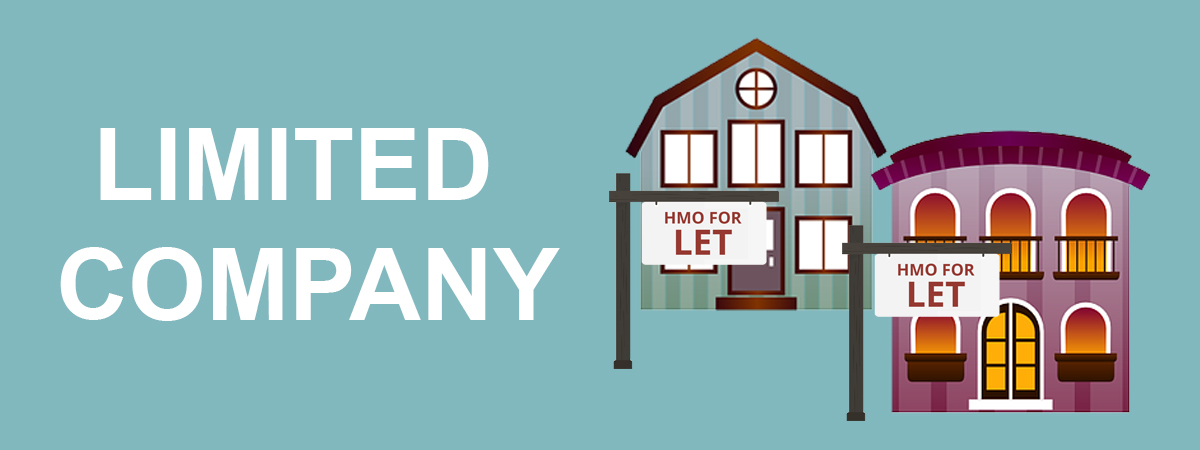
A gigantic drawback to buy-to-let investors is the huge tax implications, especially with the induction of Section 24, which prevents landlords from offsetting the interest paid on mortgage loans against their tax liability.
On top of that, landlords could potentially end up paying a massive 40% of their profits because of capital net gains. Yup, it’s painful!
Fortunately, there are reliefs, deductions and strategies available for landlords (not necessarily exclusively to landlords), which allow for constructive capital gains tax planning. One of the most obvious and common solutions is to use a company to hold the properties, which could see your profits rocket as much as 47% after a few years.
Advantage of Using a Company to Invest in Property
The main reason to use a company to invest in property is the benefit of taking advantage of corporation tax rates and dividend tax rates, which are substantially lower than income tax and capital gains tax rates.
- Transferring Ownership
If, for example, you want to “gift” a property to your son, then this will incur a capital gains tax liability if held outside the company. However, if you have the property inside a limited company, your son can subscribe for some shares.If this is done then the ownership can pass to your son tax-free, as the value of the transfer can be held over for capital gains tax purposes.
- Lower Tax Rates
As a higher rate taxpayer, you pay 40% on your profit and gains. For a limited company, the tax rates are between 0% and 30%, a considerable saving! - Dividends
A limited company can pay out profits in the form of dividends to shareholders, which attract under present legislation no National Insurance Contributions. You can use this to determine the income you receive in a particular year. So some years you may take money and some years you may not. You only pay tax on the amounts you take. As an individual you are taxed on all your income whether you want it or not!Although, dividends is still taxable; the rates are still lower than capital net gains IF you plan on selling the property under 10 years of ownership. Here’s a good article on the official Gov website, explaining dividends. I say under 10 years because a personal owner of a property can take advantage of taper relief after 10 years of home ownership while companies cannot.
The rate at which dividends tax is payable depends on the amount of a company’s profits for the financial year in question.
Dividend income in relation to the basic rate tax band Tax rate applied after deduction of personal allowance and any blind person’s allowance Dividend income that falls below the £34,600 basic rate tax limit 10% Dividend income above the £34,600 basic rate tax limit 32.5% Base rate of corporation tax is 30%, but there’s a reduced rate for small companies. Corporation tax rates:
Rates limits and fractions for financial years starting 1 April 2007 Main rate of corporation tax 30% Small companies’ rate (SCR)* 20% SCR can be claimed by qualifying companies with profits at an annual rate not exceeding £300,000 Marginal small companies’ relief (MSCR) lower limit 300,000 MSCR upper limit £1,500,000 MSCR fraction 1/40 Special rate for unit trusts and open-ended investment companies 20% * For companies with ring fence profits the small companies’ rate of tax on those profits remains at 19% and the MSCR fraction 11/400 for financial year 2007 starting 1 April 2007. Ring fence profits mean the income and gains from oil extraction activities or oil rights in the UK and UK Continental Shelf.
The main rate of corporation tax applies when profits (including ring fence profits) are at a rate exceeding £1,500,000, or where there is no claim to another rate, or where another rate does not apply.
Now compare those to income tax (taken from GOV website):
Income (£) Tax rate (%) *Up to £12,500 Personal Allowance 0% £12,501 to £50,000 20 £50,001 to £150,000 40 over £150,000 45 *You do not get a Personal Allowance on taxable income over £125,000.
Ultimately, what is left remaining, if any, after taking your dividends, the remaining profit will be liable for corporation. Corporation tax is the tax that the company pays on its profits and dividends are monies taken out of profits that are paid to shareholders. How you decide to extract profits depend on how much you earn, and how much profit your company makes, how many expenses you have- that’s where a good accountant is handy. However, if your annual income is below 34.6k, it makes a lot of sense to pay yourself dividends to bring you up to the line, and declare the rest as company profit and pay corporation tax on the remaining.
- Property Development Profits
Property development is a trade. Using a limited company will help you keep much more of the profit to use in the next development! If you’re receiving 100% profit from rental income (i.e you have no mortgage on the property), then the money you receive could go towards the deposit on another property under the name of the company (but the profit will still be liable for corporation tax, unless you put the money down as a deposit before the end of the tax year). Otherwise, using the money as profit can be declared as dividends. - Property Management Company
The use of a property management company can save considerable amounts of tax where it is not possible or desired to hold the properties within a limited company. - Limited Liability
Imagine you purchase a buy-to-let property, and your tenant has an accident, falling down the stairs of the property as one of the steps was not properly maintained. He successfully sues you and not only do you lose the property to pay for the settlement, but you have to sell your own residence as well! This can be avoided by owning the property in the limited company, where the company has LIMITED LIABILITY!Disadvantages of Using a Company to Invest in Property
The company itself would be charged to corporation tax on the gain arising, and in addition, as already explained, you would be charged income tax on the receipt of the dividend if you extract the remaining proceeds from the company.
If you are planning to occupy the property as a main residence, then using a company would not be beneficial. The company would not be able to claim PPR (principal private residence) relief on a future disposal. Additionally, you would be charged UK income tax on a benefit in kind arising from the provision of accommodation by the company (unless you paid the company a market rental).
Companies are exempted from taper relief.
Who should consider using a company to save tax?
The decision as to whether a company should be used to hold the new investment property will essentially depend on your future intentions.
If you are more concerned about minimising taxes on any ongoing rental income the company may be the most tax efficient option, particularly if the profits are retained within the company for the purchase of additional properties. The company rate of tax (20%) would be much less than the higher rate of income tax the owners would suffer (if higher rate taxpayers). If profits were extracted the additional income tax payable on receipt would eliminate much of the benefit, but if the profits were retained in the company there would be no additional taxes. This is the real advantage of using a company.
In summary, where possible capital treatment should usually be aimed for those wanting to minimise the tax payable. If a significant gain is expected to be made when selling the property, particularly for long-term investment properties, then personal ownership is usually preferred.
Is it Easy to Start a Company?
Starting and running a company in the UK is cheap and easy. It costs about £100 to set one up and to have a set of annual accounts produced can end up costing no more than £500. That’s a relatively good investment considering you stand to save thousands with the benefit of cooperation tax.
Final note
In all cases you need to compare dividend tax to capital gains to corporation, to work out which will benefit most. In my personal case, I plan on keeping my properties for over 10 years, so I’m going to benefit from taper relief- I won’t need to start a company. But for those that don’t have a mortgage and receive rental income, it’s well worth starting a rental company. If you plan on selling property that you haven’t owned for more than 10years, it also might be worth starting a property company so you can benefit from corporation tax rates or tax on dividends rates.
I would definitely suggest seeking advice from a well-experienced accountant, because they can calculate which options will benefit you most.
Disclaimer: I'm just a landlord blogger; I'm 100% not qualified to give legal or financial advice. I'm a doofus. Any information I share is my unqualified opinion, and should never be construed as professional legal or financial advice. You should definitely get advice from a qualified professional for any legal or financial matters. For more information, please read my full disclaimer.


 Landlord Products / Services
Landlord Products / Services































This sounds like the route myself and my partner should be taking. We currently have 2 investment properties and are looking to incraese that by another 2. One question, how do you actually fund the properties. If the properties are on buy-to-let mortgages which are tied to the my name, would that cause an issue if they are held with in a company?